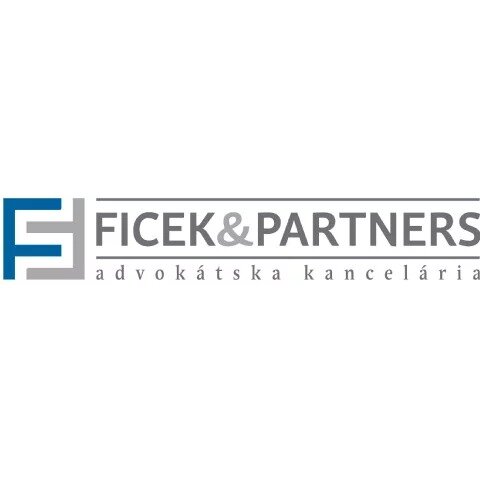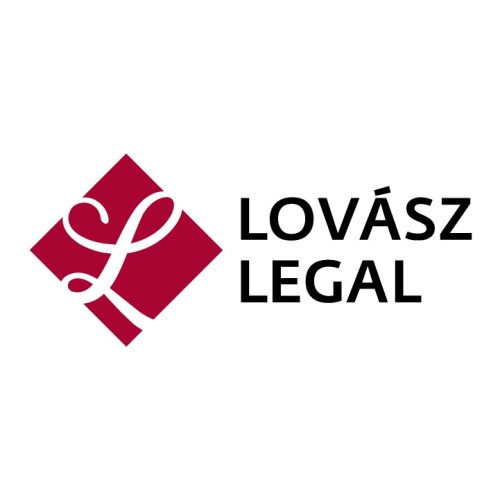Best Faith-Based Law Lawyers in Slovakia
Share your needs with us, get contacted by law firms.
Free. Takes 2 min.
Or refine your search by selecting a city:
List of the best lawyers in Slovakia
About Faith-Based Law in Slovakia
Faith-Based Law in Slovakia refers to the legal framework that addresses issues arising from the interaction between religion and law. It encompasses matters related to religious freedom, the rights of religious entities, the application of religious laws, and the recognition of religious marriages and ceremonies. Slovakia, being a member of the European Union, upholds principles of religious freedom and non-discrimination; however, the application of Faith-Based Law can sometimes vary depending on the specific religious community involved.
Why You May Need a Lawyer
There are several situations in which individuals or religious organizations may require legal assistance in the field of Faith-Based Law. Common scenarios include disputes over religious property, conflicts between civil and religious marriage laws, issues related to religious instruction in schools, legal challenges faced by religious charities or organizations, and questions regarding the legal recognition of religious practices or ceremonies. Legal expertise is crucial in navigating the complexities of these situations while ensuring compliance with both Slovakian law and religious principles.
Local Laws Overview
Slovakia's legal system recognizes and protects the freedom of religion, as outlined in its Constitution and further regulated by national legislation. Key aspects relevant to Faith-Based Law include:
- Religious Freedom: The Slovak Constitution guarantees the right to practice religion freely, both individually and collectively.
- Legal Recognition of Religions: Religious organizations must meet specific criteria to obtain legal recognition, which allows them to perform legal functions such as conducting marriages.
- Religious Education: Laws exist concerning the provision of religious instruction in public and private educational institutions.
- State and Religion Separation: Slovakia maintains a secular government, with religion and state functions being constitutionally separate.
- Discrimination Protection: Legislation prohibits discrimination based on religious beliefs in various spheres, including employment and public services.
Frequently Asked Questions
What are the legal requirements for a religious organization to gain recognition in Slovakia?
Religious organizations must register with the Ministry of Culture and fulfill specific criteria, such as having a certain number of followers and demonstrating a stable existence and societal contribution.
Can religious marriage ceremonies be legally recognized in Slovakia?
Yes, religious ceremonies can be recognized legally, provided the religious organization is registered and authorized to conduct marriages as per Slovakian law.
How does Slovak law protect against religious discrimination?
Slovak law includes several anti-discrimination measures, ensuring individuals are not treated unfairly based on their religious beliefs, whether in employment, education, or other services.
What role does the state of Slovakia play in religious education?
The state enables religious education, particularly in public schools, but it also ensures that such instruction adheres to general educational standards and respects the religious freedom of others.
How are conflicts between civil law and religious law resolved?
In cases of conflicts, civil law generally prevails in Slovakia. However, legal advice can help navigate these situations to honor religious principles where possible within the law.
What happens if a religious organization loses its legal recognition?
If an organization loses recognition, it may lose the legal capacity to conduct certain activities like marriages or running charitable entities. They may also miss out on any state funding or tax benefits.
Is it possible for a religious organization to receive financial support from the Slovak government?
Yes, recognized religious organizations can receive state funding or grants, especially if they contribute significantly to societal welfare or cultural preservation.
Are religious symbols allowed to be displayed in public spaces in Slovakia?
Generally, religious symbols can be displayed in private and some public settings, provided they do not infringe on the rights of others or violate anti-discrimination laws.
What legal recourse is available for individuals who feel their religious rights have been violated?
Individuals can file complaints with relevant authorities, and in some cases, pursue legal action through the Slovak judicial system to address violations of their rights.
How are religious charities regulated in Slovakia?
Religious charities must comply with national regulations governing non-profit organizations, which include registration, financial transparency, and operational accountability.
Additional Resources
Several resources can provide additional support and information for those seeking legal advice in Faith-Based Law in Slovakia:
- Slovak Ministry of Culture: Oversees the registration and regulation of religious organizations.
- Ombudsperson for Human Rights: Can address grievances regarding religious freedom and protections.
- Non-profit organizations focusing on religious rights advocacy.
- Legal aid services specialized in human rights and religious law.
Next Steps
If you require legal assistance in Faith-Based Law, consider these steps:
- Consult with a lawyer specialized in Faith-Based Law to understand your legal standing and options.
- Gather necessary documentation related to your case, including relevant correspondence and contracts or agreements.
- Research and contact religious or legal organizations that may offer guidance or support.
- Consider starting with an initial consultation to evaluate the potential costs and benefits of pursuing legal action.
- Stay informed about your legal rights and any potential changes in legislation that may affect your situation.
Lawzana helps you find the best lawyers and law firms in Slovakia through a curated and pre-screened list of qualified legal professionals. Our platform offers rankings and detailed profiles of attorneys and law firms, allowing you to compare based on practice areas, including Faith-Based Law, experience, and client feedback.
Each profile includes a description of the firm's areas of practice, client reviews, team members and partners, year of establishment, spoken languages, office locations, contact information, social media presence, and any published articles or resources. Most firms on our platform speak English and are experienced in both local and international legal matters.
Get a quote from top-rated law firms in Slovakia — quickly, securely, and without unnecessary hassle.
Disclaimer:
The information provided on this page is for general informational purposes only and does not constitute legal advice. While we strive to ensure the accuracy and relevance of the content, legal information may change over time, and interpretations of the law can vary. You should always consult with a qualified legal professional for advice specific to your situation.
We disclaim all liability for actions taken or not taken based on the content of this page. If you believe any information is incorrect or outdated, please contact us, and we will review and update it where appropriate.
Browse faith-based law law firms by city in Slovakia
Refine your search by selecting a city.












